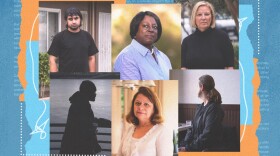Just days before the crucial Texas and Ohio Democratic primaries, Rep. Bob Filner and I spoke about his take on being a superdelegate in this very close contest at a very special time. Congress had returned to Washington after the President’s Week recess to tackle business as usual despite the buzz over presidential campaign politics. There were votes to be taken, meetings to be held, and visitors to greet. But one House member found time between votes to duck into Statuary Hall , one of the most imposing and funereal chambers on Capitol Hill. There, in the relative quiet and surrounded by sculptures of prominent historical figures, he pulled out his cell phone and answered my call.
San Diego’s Bob Filner has been a Democratic congressman for 16 years and in that capacity, has had an occasional conversation with a White House occupant. Now, however, he finds himself actively pursued by presidential candidates and their closest advisors. He’s had long phone conversations about veterans’ problems (Filner is chairman of the House Veterans Affairs Committee) with Barack Obama, Hillary Clinton and former President Bill Clinton. Filner is on the receiving end of all this attention because he, along with 794 other Democratic Party insiders, is a superdelegate to the Democratic National Convention.
Superdelegates are current office holders including Democratic members of Congress, senators, governors, party officials and some VIPs such as Bill Clinton. They were so designated in 1982 to position them as a potential check against an unelectable nominee from outside the mainstream. This year, they emerged as potential kingmakers after Super Tuesday when neither Clinton nor Obama was clearly on the road to win the Democratic nomination. But since then, Obama has piled up a significant lead after 10 more primaries. It is now likely that whoever wins the bulk of the delegates in the upcoming Texas and Ohio primaries will become the Democratic nominee.
In that case, each superdelegate won’t have to agonize over making a choice among the following options:
-
their
vote should ratify the popular vote
-
their
vote should ratify the vote within their district or state
-
their
vote should be determined by candidate lobbying
-
their
vote should be a personal preference
If the voters rally around one candidate on March 4th, the superdelegates won’t need to unlock the door to the general election campaign.
Greg Duch from Le Quartier Gaslamp
February 27, 2008 at 11:57 PM
If Howard Dean and his Democratic leadership cohorts were wise, they might undertake a reform of the "SUPER-DELEGATE" nonsense, ASAP.
There are just two many super-delegates. They do have the potential power to overturn the will of the people, (whether or not they actually will do so this year, is still is up in the air--with all due respects to your considered prognostication.)
Whatever the rationale there was for inventing "SUPER-DELEGATES", it no longer makes any sense.
Likewise, the ambiguity/uncertainty about the rights of the Florida and Michigan delegations to be seated and abvle to vote should have been resolved fairly, weeks ago. Compromise is not a four letter word...
To allow such uncertainty and potential for a self-destructive convention, as a result of the rule-breaking by FL and MI is just plain asking for trouble at the convention.
It is dumb. But then we are talking about Democrats-----
mort brigadier from san diego 91977
April 09, 2008 at 02:55 AM
Right on, Greg Duch!!!
(see comment above).
While we are slamming the system, let's hold the primaries ... of all parties ... of all states on the same day. I suggest April 15, so we can soberly dwell on what our taxes buy for us, and on what they fail to provide.




